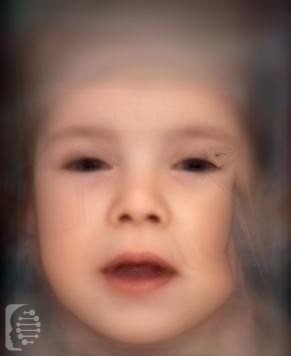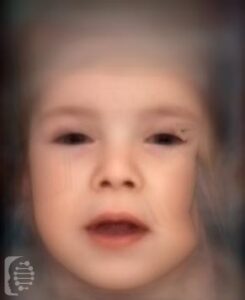What is Menkes Disease (MNK)?
Menkes Disease is a genetic disorder that affects how well the body absorbs copper.
It occurs in 1 in 100,000 live births, with the majority of individuals with the syndrome being born prematurely.
Due to the way in which it is inherited, it occurs mainly in males.
Syndrome Synonyms:
Copper Transport Disease; Kinky Hair Disease; Kinky hair Syndrome; Menkes Syndrome MK; MNK Steely Hair Disease
What gene change causes Menkes Disease (MNK)?
Mutations in the ATP7A gene cause the syndrome. As an X-linked recessive disorder it is inherited in the majority of cases and presents mainly in males. Some cases are caused by new mutations.
Syndromes inherited in an X-linked recessive pattern generally only affect males. Males only have one X chromosome, and so one copy of a gene mutation on it causes the syndrome. Females, with two X chromosomes, only one of which will be mutated, are not likely to be affected.
What are the main symptoms of Menkes Disease (MNK)?
In infants, the main and most severe symptoms are a failure to thrive and jaundice. Most individuals have unstable, low body temperatures.
Typical physical characteristics of the syndrome include very little, kinky hair as well as dry skin. Low muscle tone is another common symptom.
Health conditions associated with the syndrome include the deterioration of the nervous system, severe growth delay, brain and cognitive abnormalities as well as blood clots and osteoporosis.
Possible clinical traits/features:
Osteomyelitis, Abnormality of the face, Osteoporosis, Seizure, Venous insufficiency, Spontaneous hematomas, Sparse hair, Reduced bone mineral density, Tarsal synostosis, Wormian bones, Recurrent fractures, X-linked recessive inheritance, Umbilical hernia, Death in childhood, Abnormal hair quantity, Woolly hair, Sepsis, Microcephaly, Abnormal palate morphology, Dilatation, Atypical scarring of skin, Bladder diverticulum, Behavioral abnormality, Brachycephaly, Abnormal carotid artery morphology, Abnormality of the liver, Chondrocalcinosis, Chorea, Arterial stenosis, Aplasia/Hypoplasia of the abdominal wall musculature, Pectus excavatum, Metaphyseal widening, Metaphyseal spurs, Micrognathia, Mask-like facies, Intrauterine growth retardation, Intellectual disability, Intracranial hemorrhage, Muscle weakness, Muscular hypotonia, Narrow chest, Nausea and vomiting, Joint hypermobility, Joint laxity, Bowing of the long bones, Developmental regression, Thickened skin, Cutis laxa, Feeding difficulties in infancy, Exostoses.
How is it diagnosed?
To find out if someone has a diagnosis of Menkes Disease (MNK), it is important to have a consultation and evaluation with a clinical genetic specialist. Specialists may also suggest specific genetic testing or other types of tests to help reach a diagnosis. FDNA’s AI technology can help speed up the diagnostic process by analyzing facial features and other health information.


